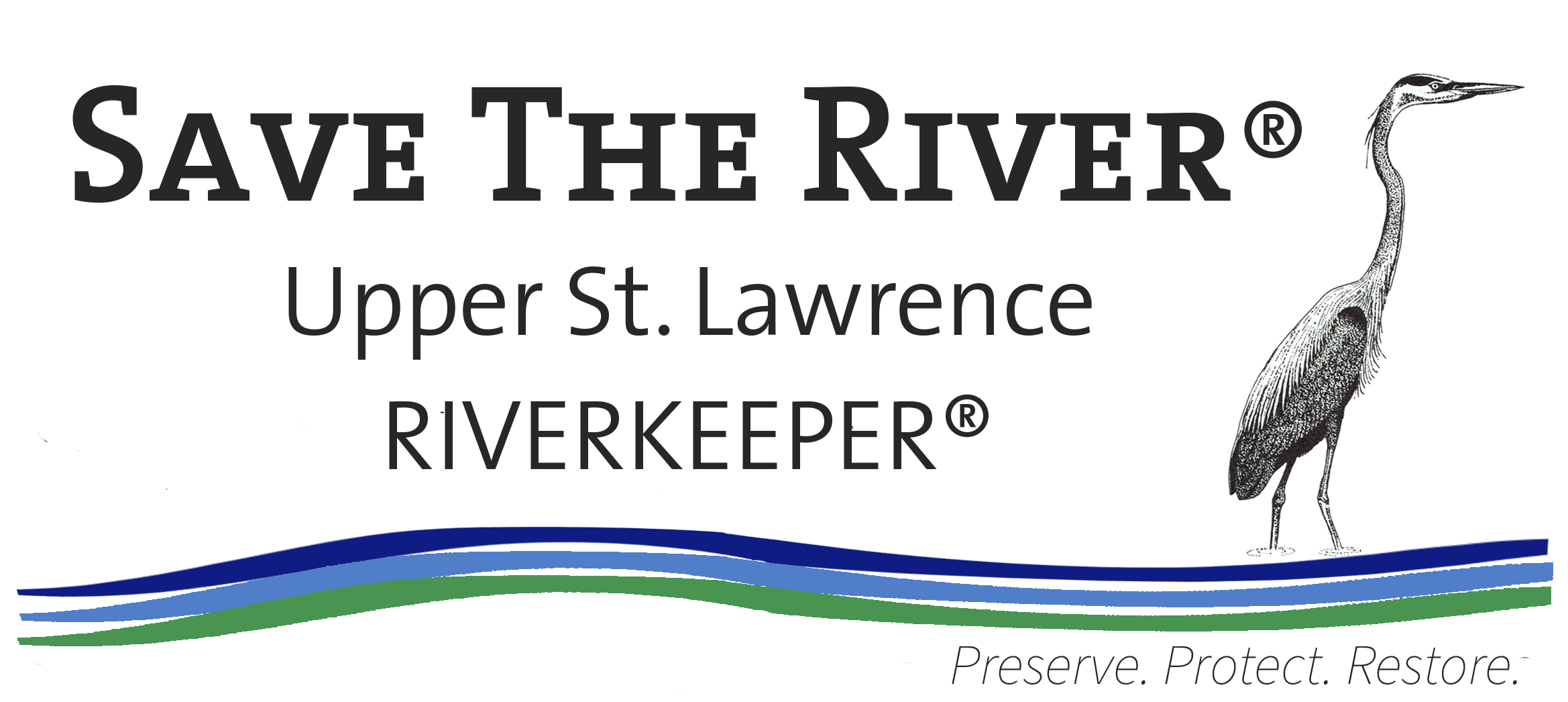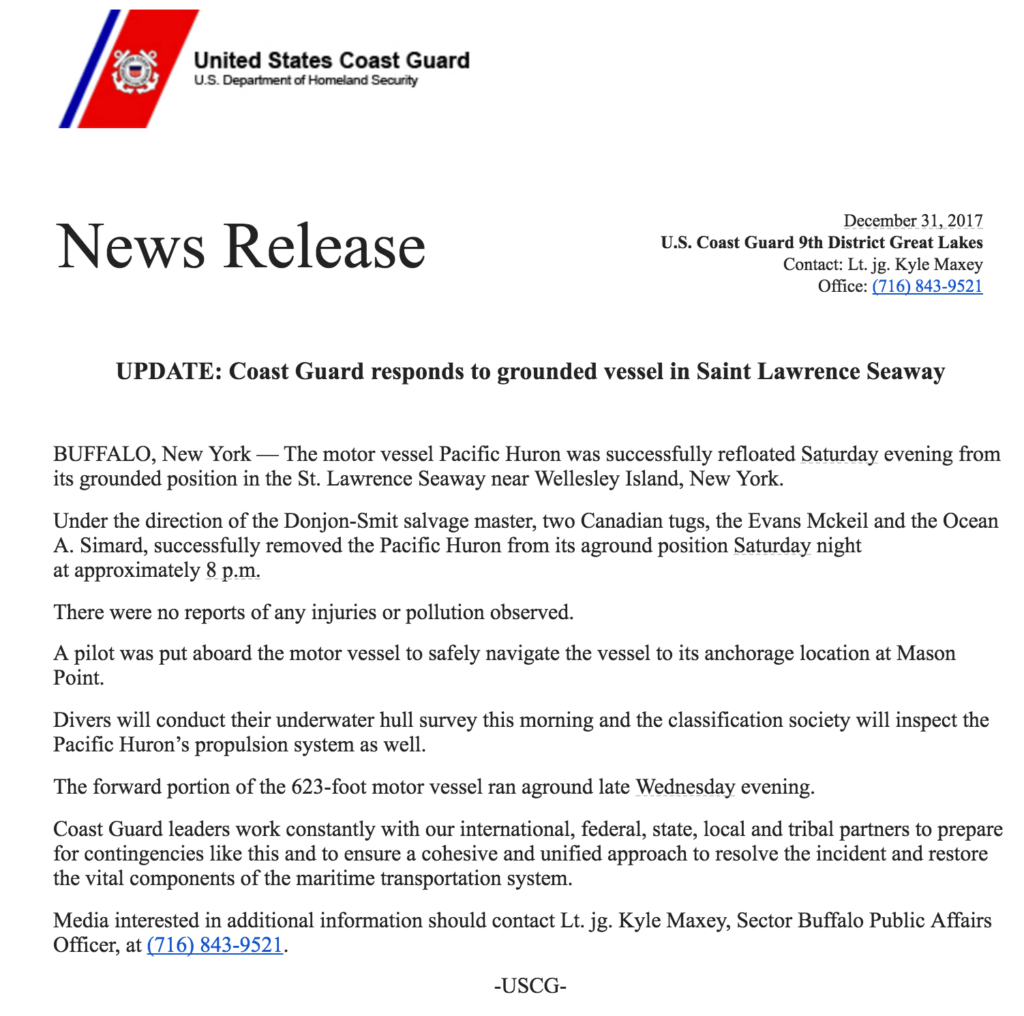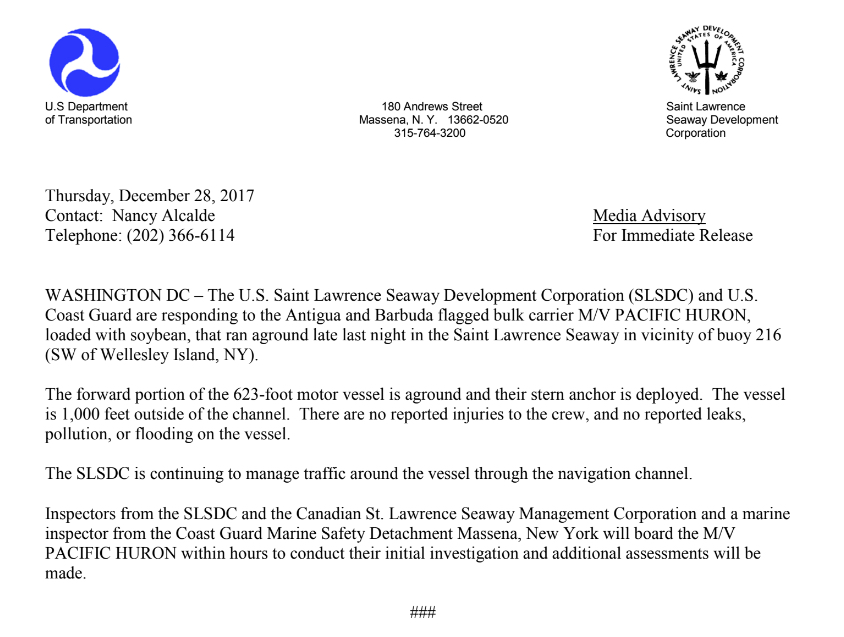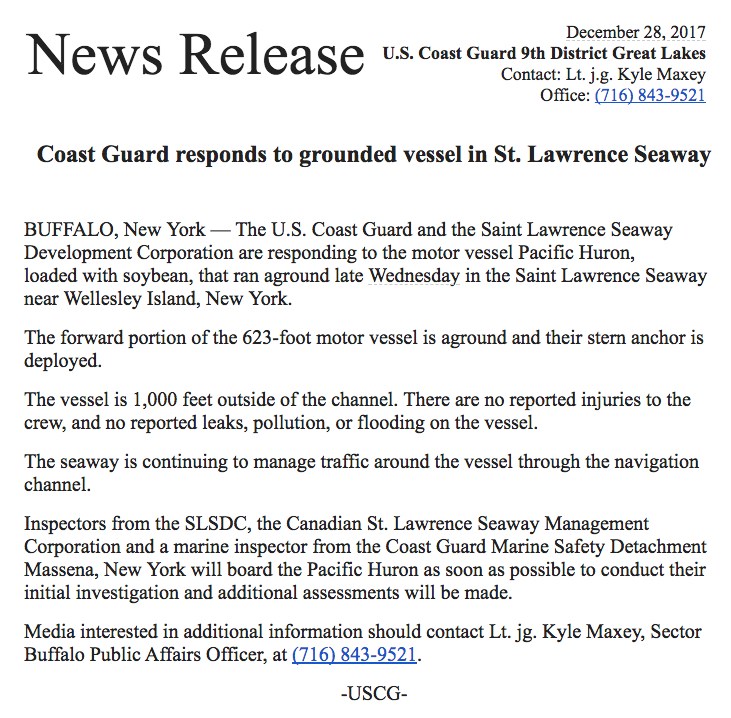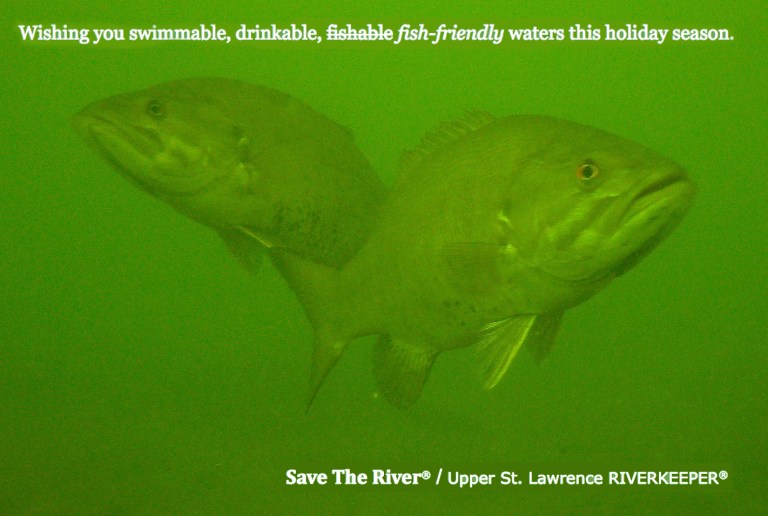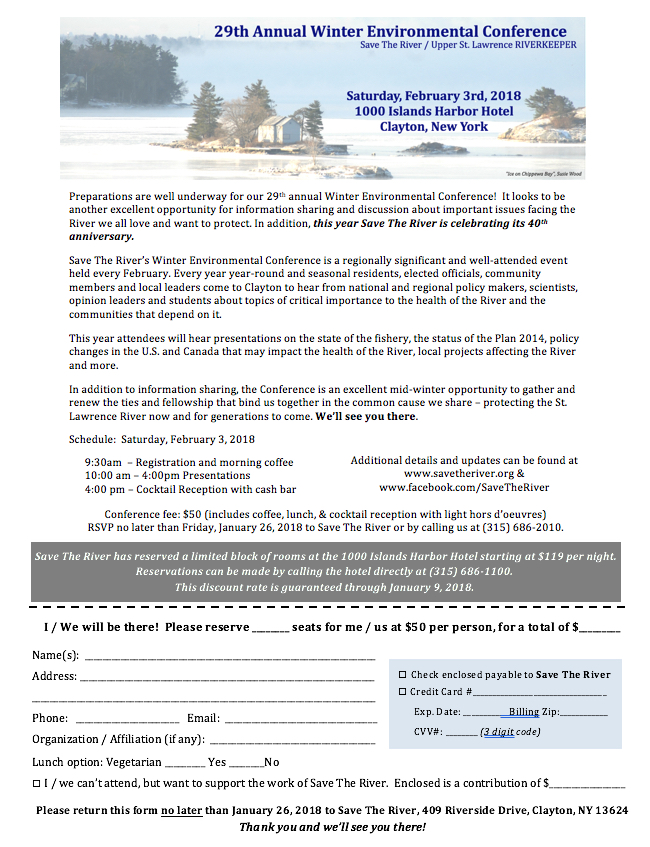Latest update on the Pacific Huron from the U.S. Coast Guard
December 31st, 2017 | Posted by Lee
Ship Aground off Blind Bay – Updated
December 28th, 2017 | Posted by Lee
The Pacific Huron is hard aground off Blind Bay near Twin Island since earlier this morning.
Per the Seaway Development Corporation no pollution released to River, no breach and no injuries reported. Inspectors are in route and more details will follow.
Given the weather conditions let’s hope for a speedy and uneventful re-float.
Ship’s position per Marine Traffic is Latitude / Longitude: 44.27595° / -76.03012°
Seaway press release on the grounding:
Coast Guard press release:
Holiday Wishes from the St. Lawrence
December 21st, 2017 | Posted by admin
photo by Patricia O’Hara
Save The River’s 29th Annual Winter Environmental Conference
December 8th, 2017 | Posted by Lee
Save the date! Or, better yet, sign up and lock in your attendance now.
The International Joint Commission assesses U.S. and Canadian efforts to improve Great Lakes and St. Lawrence River water quality:
December 4th, 2017 | Posted by Lee‘Commendable progress. Much more to be done.’
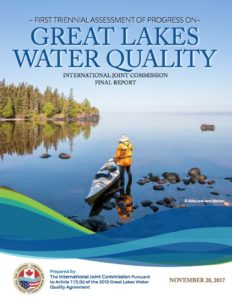 We were pleased to see the scope of the findings and the recommendations in the IJC report, premised as they are on sound science and significant public input. We were also pleased to get to comment on the report in a recent Watertown Daily Times article, “IJC report talks water quality concerns on Lake Ontario” by Gordon Block published December 1, 2017.
We were pleased to see the scope of the findings and the recommendations in the IJC report, premised as they are on sound science and significant public input. We were also pleased to get to comment on the report in a recent Watertown Daily Times article, “IJC report talks water quality concerns on Lake Ontario” by Gordon Block published December 1, 2017.
In its first assessment on how the two countries are doing to meet the goals of the Great Lakes Water Quality Agreement, the IJC found progress on the general objectives of accelerated restoration of contaminated Areas of Concern, the development of binational habitat conservation strategies, the absence of newly introduced aquatic invasive species, and comprehensive reporting on groundwater science.
But, and we here at Save The River definitely agree, the IJC finds:
– insufficient progress toward achieving human health objectives;
– insufficient progress on chemicals of mutual concern that pose a threat to the health of humans, wildlife and aquatic organisms;
– more work is required to control the spread of invasive species already in the Great Lakes and St. Lawrence River;
– there is no basin-wide perspective, approach or strategy for addressing climate change;
– the governments have not fully incorporated robust public engagement into their activities; and
– they should reach beyond the limits & audiences typically recognized & should factor in consideration of environmental justice as a key objective.
There is a lot in the report for anyone who cares about the health of the Great Lakes and the St. Lawrence River and the people and communities that rely on them to be swimmable, fishable and drinkable.
The full report, “First Triennial Assessment of Progress on Great Lakes Water Quality“, is worth a read.
